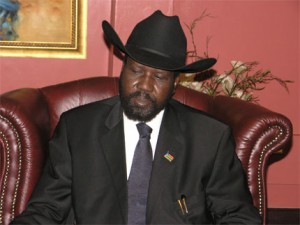We Americans always get ourselves in a tizzy when Russia turns to the provocation that it has shown over many years. It is too bad we didn’t get ourselves as worked up when George W. Bush invaded Iraq under false pretenses, thus destabilizing the entire Southwestern Asia region.
I am no fan of Vladimir Putin. When Bush said upon visiting with the Russian leader at the president’s Texas ranch that “I was able to get a sense of his soul.” That was supposed to be something good. I think, as is the case with many of W’s exploits, he had a great misreading of what the Bush perceived as his Russian counterpart’s soul.
Just as was with the case with Iraq — bolstered by Fox News and a mainstream media that was too lazy or foolish not to check out our claims — there is reportedly much support for the Russian invasion and occupation of Crimea. That goes for both many Russians as well as Ukrainians in name only (UINO) traditionally of Russian heritage. In fact, former Soviet Union leader Nikita Khrushchev’s daughter believes that many of the older residents of Crimea are still angry that Khrushchev gave Crimea back to the Ukraine 60 years ago.
This world has complicated relationships among its residents. Just imagine how those Texans would feel who moved to the Mexican state of Tamaulipas in the 70s for cheap living and good fishing, only to have the United State annex it today. Well, some residents would be pretty damn happy about it. Then given the area’s interactions with other settlers and invaders, others would be understandably outraged.
Ms. Kruschcheva’s interview provides some interesting thoughts on the Russian move into Crimea. That includes the Russian people and their thinking of the past as almost a dogma. Another National Geographic article adds yet another layer to the story that is the move made by Russia into Crimea. It’s a gas. No, I am really talking about gas. Yet another petroleum product over which world leaders can go crazy!
Russia, like it’s predecessor the Soviet Union, is a natural enemy of the U.S. That is how many see it who explore realpolitik for a living. Often, those adversarial relations can often be compared to the old Warner Bros. cartoon featuring Ralph the Wolf and Sam the Sheepdog. Each morning the two go to work, doing their thing. Ralph steals chickens and battles Sam daylong as the sheepdog fights tooth and nail to protect his flock. At the end of the day, they punch out on the clock.
Ralph says: Good night, Sam! Sam says: Good night Ralph!
President Obama and the EU will get all huffy with Russia. Putin will be his blustery self. Hopefully, the casualty count will remain few. Russia and its long-time semi-ally and partial foe, the U.S. clock out on another day of running the world.
Good night, Vladimir! Good night, Barrack!

